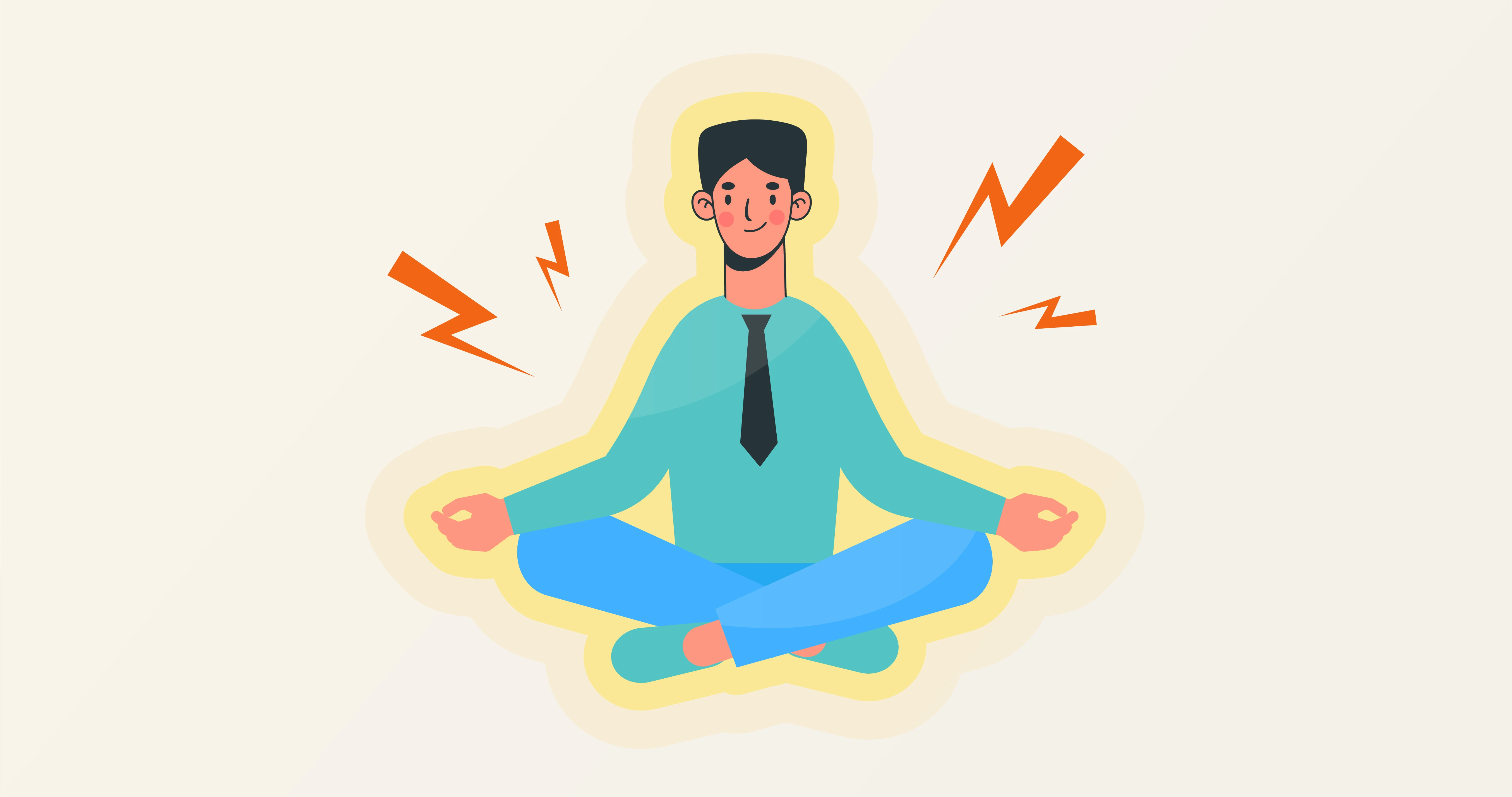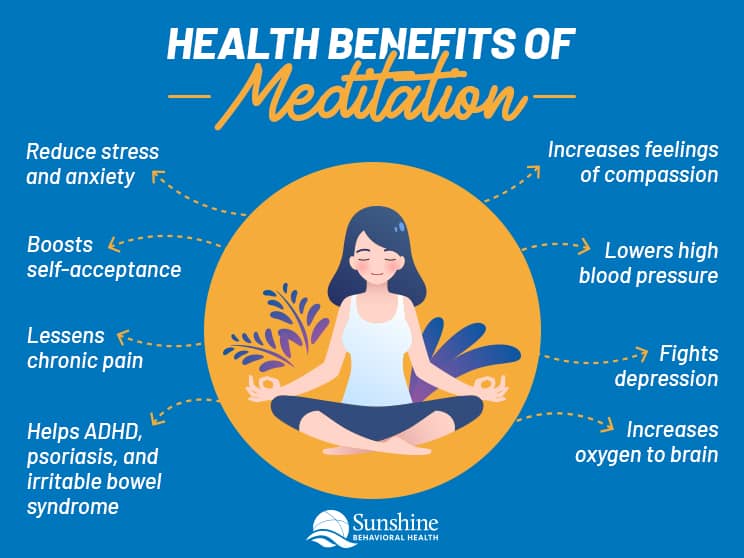In today’s fast-paced world, achieving balance and wellness is more important than ever. Mindfulness and meditation have emerged as powerful practices to enhance mental clarity, reduce stress, and improve overall health. These ancient techniques, backed by modern research, offer profound benefits for both the mind and body.
This article explores the role of mindfulness and meditation in promoting well-being, sharing tips to get started, and highlighting the transformative impact they can have on daily life. Whether you’re a beginner or looking to deepen your practice, embracing mindfulness could be the key to unlocking a healthier and more fulfilling life.
1. Understanding Mindfulness: What It Means and Why It Matters
Mindfulness is the practice of being fully present in the moment, aware of your thoughts, feelings, and surroundings without judgment. It’s about slowing down and focusing on the now, rather than dwelling on the past or worrying about the future.
Research shows that practicing mindfulness can lead to reduced anxiety, better focus, and enhanced emotional resilience. By cultivating awareness, individuals can manage stress more effectively and build healthier relationships.
To begin, start with simple practices like mindful breathing or paying close attention to everyday tasks, such as eating or walking. These small changes can bring a sense of calm and clarity to your daily routine.
2. The Science Behind Meditation and Its Health Benefits
Meditation complements mindfulness by training the mind to achieve a state of relaxation and focus. Scientific studies have revealed that regular meditation can lower blood pressure, improve immune function, and even enhance brain health.

Key health benefits include:
- Stress Reduction: Meditation reduces cortisol levels, helping to alleviate chronic stress.
- Improved Mental Clarity: Regular practice enhances focus and decision-making abilities.
- Emotional Stability: Meditation promotes emotional regulation, reducing feelings of anger or frustration.
- Better Sleep: Mindfulness meditation has been shown to combat insomnia and improve sleep quality.
Even a few minutes of meditation daily can create lasting changes in your overall well-being. Guided meditations or apps like Calm or Headspace are great tools for beginners.
3. How to Incorporate Mindfulness into Everyday Life
Bringing mindfulness into your routine doesn’t require major changes. Simple habits can make a significant difference:

- Start Your Day Mindfully: Spend a few minutes each morning focusing on your breath before checking your phone or email.
- Practice Gratitude: Reflect on three things you’re thankful for each day to shift your focus toward positivity.
- Engage in Mindful Eating: Pay attention to the taste, texture, and aroma of your meals to enhance your dining experience and promote better digestion.
- Take Mindful Breaks: Step away from work or technology periodically to stretch, breathe, or simply observe your surroundings.
Integrating mindfulness into daily activities helps reduce stress and boosts mental health, making you more productive and content.
4. Meditation Techniques to Fit Every Lifestyle
Meditation is not a one-size-fits-all practice. Explore different techniques to find what works best for you:
- Focused Attention Meditation: Concentrate on a single object, such as your breath, a mantra, or a candle flame.
- Body Scan Meditation: Lie down and bring awareness to each part of your body, releasing tension as you go.
- Loving-Kindness Meditation: Focus on cultivating compassion for yourself and others through positive affirmations.
- Movement Meditation: Practices like yoga, tai chi, or walking meditation combine mindfulness with physical activity.
Experiment with these methods to discover a style that aligns with your lifestyle and goals. Consistency is key, so start with just five to ten minutes a day and gradually increase the duration.
5. Mindfulness and Meditation for Mental Health

The connection between mindfulness, meditation, and mental health is well-documented. These practices can help manage a variety of conditions, including:
- Depression: Mindfulness-based cognitive therapy (MBCT) has proven effective in preventing relapses of depression.
- Anxiety: Meditation reduces overthinking and calms the mind, providing relief from anxiety disorders.
- Chronic Stress: Regular mindfulness exercises lower stress hormones, leading to a more balanced emotional state.
- PTSD and Trauma: Techniques like mindfulness-based stress reduction (MBSR) have been beneficial in treating post-traumatic stress.
Incorporating mindfulness into therapy or daily routines can significantly improve emotional resilience and overall mental health.
6. The Role of Mindfulness in Physical Well-Being
While mindfulness is often associated with mental health, its benefits extend to physical wellness as well:
- Pain Management: Mindfulness meditation has been shown to reduce chronic pain by altering the brain’s perception of discomfort.
- Improved Cardiovascular Health: Regular practice lowers blood pressure and reduces the risk of heart disease.
- Stronger Immune System: Mindfulness boosts immunity, helping the body fight infections and inflammation.
- Enhanced Digestion: Mindful eating promotes better digestion and prevents overeating.
These physical health benefits underscore the holistic nature of mindfulness, making it an essential tool for overall wellness.
7. Tips for Building a Sustainable Practice
Sticking to mindfulness and meditation practices can be challenging, but these tips can help you stay consistent:
- Set Realistic Goals: Start with short sessions and gradually increase the time as you become more comfortable.
- Create a Dedicated Space: Choose a quiet, clutter-free area in your home for meditation.
- Use Reminders: Set phone alerts or place sticky notes around your space to remind you to pause and breathe.
- Join a Community: Meditating with others can provide motivation and support. Look for local groups or online classes.
- Celebrate Progress: Acknowledge small milestones to stay motivated on your mindfulness journey.
Building a sustainable practice takes time, but the rewards are well worth the effort.
8. Mindfulness and Meditation in the Modern Workplace
As stress levels rise in professional settings, many workplaces are incorporating mindfulness programs to support employee well-being. Mindfulness can improve workplace productivity, reduce burnout, and enhance team collaboration.
Simple practices like taking mindful breaks, practicing deep breathing during meetings, or using meditation apps during lunch breaks can foster a healthier work environment. Employers can also offer workshops or create quiet spaces for employees to recharge.

Mindfulness in the workplace not only benefits individuals but also contributes to a more positive and harmonious organizational culture.
Conclusion: Transform Your Life with Mindfulness and Meditation
Mindfulness and meditation are more than just trends—they are transformative practices that enhance both mental and physical health. By embracing these tools, you can reduce stress, improve focus, and foster emotional resilience. Whether through simple daily habits or dedicated meditation sessions, small steps can lead to profound changes in your life.
Ready to take control of your well-being? Explore our website for more resources, share your mindfulness journey in the comments below, and discover how meditation can be a game-changer for your health. Let’s inspire one another to live healthier, more balanced lives!

Leave a Reply